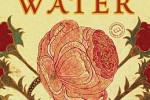This post was written by guest contributor Rahela Choudhury, whose initial review of Gardens of Water can be found here. Other writing by Rahela is available here, here, and here.
This second post about Alan Drew’s novel Gardens of Water will serve as a critique of the book’s accompanying teacher’s guide. In particular the focus will be on how this guide, while leading readers to reflect on certain aspects of the character Irem’s life, manages to either minimize or altogether disregard some of the most significant events this character experiences throughout the story.
The first problematic perusal into Irem’s life within the teacher’s guide is in how it only raises questions pertaining to her life prior to the escape to Istanbul with her American boyfriend Dylan. Two examples of such questions include the following: “How do themes of family honor and freedom come into conflict in İrem’s decision to leave the camp with Dylan and travel to Istanbul? Why does her irrevocable decision to pursue her heart’s desire threaten her family’s name?”
While these questions are perfectly fine to ask in and of themselves, they only bring readers’ attention to part of Irem’s story. The guide does not ask readers further questions about how Irem’s feelings towards “pursuing her heart’s desire” change once she reaches the city, and how she even starts doubting and questioning whether obtaining freedom from her family was worth it after all. The novel’s significant portrayal of Irem’s emotional and psychological angst after having finally escaped from her family is thus not made apparent to readers by the guide. Instead, it leads readers to focus on the ideal, rather than real, consequences of Irem’s escape as espoused by concepts such as “freedom from family honor.”
The most alarming question about Irem as set forth by the guide pertains to her relationship with Dylan. At one point readers are asked, “How does their physical consummation of their relationship change their feelings for one another?” By using the term “physical consummation” this question severely downplays the fact that Dylan actually raped Irem. It leaves one wondering why the guide chose to phrase the question in such a euphemistic way.
In relation to this, the guide poses a greater number of questions regarding Sinan’s complicity behind Irem’s death over Dylan’s, thereby bringing greater attention to the former over the latter. Such questions include the following: “How responsible is Sinan for his daughter’s choice to take her own life?” and “How does his rejection of his daughter (in lieu of her murder in an “honor killing”) reflect his conflicted feelings about his moral obligations?” The latter question is especially troubling because it relates the act of honor killing to that of a moral obligation, without making readers aware that honor killings have no basis in Islam. This, in turn, could cause readers unfamiliar with Islam to believe that honor killings are religiously sanctioned because they are supposedly “moral obligations” placed upon Muslim males.
The teacher’s guide to the novel Gardens of Water poses various problematic questions to readers that inevitably promote specific stereotypes about Muslim family honor and relationships. Questions promoting these stereotypes emanate primarily from Sinan’s relationship with his daughter. The guide also provides an incomplete picture of Irem’s life and death, and doesn’t reveal her as being a more nuanced character. It also severely minimizes the impact of the most significant event in the character’s life. Although thoroughly comprehensive in questioning other aspects of Alan Drew’s novel, the teacher’s guide ultimately fails to question and challenge readers about stereotypes and assumptions regarding Muslim women’s lives and family relations in Islam.

